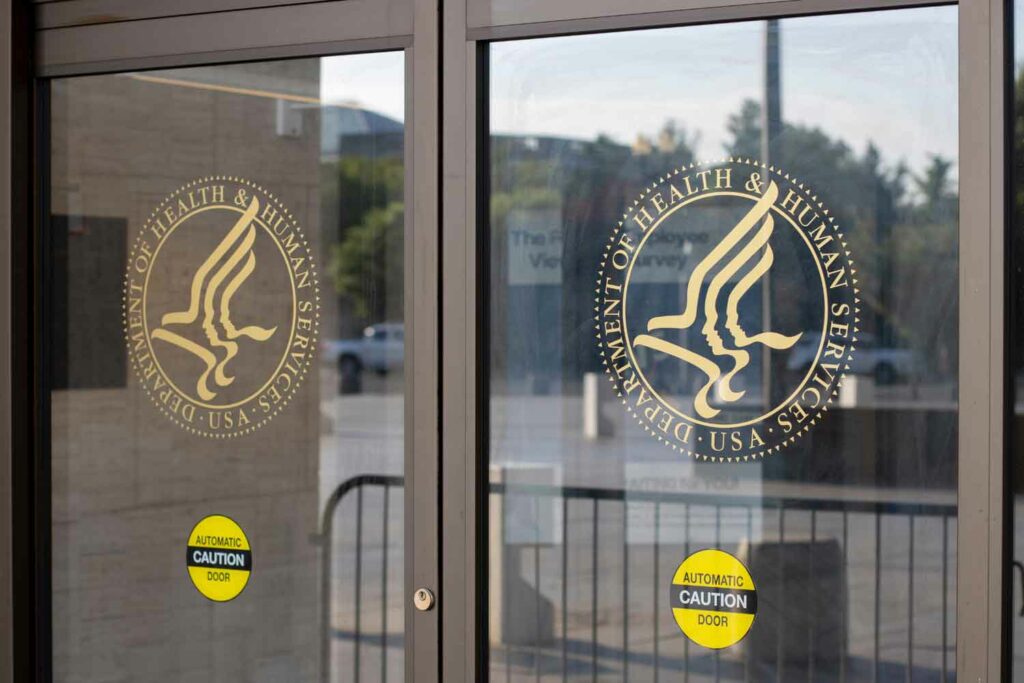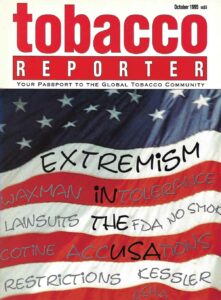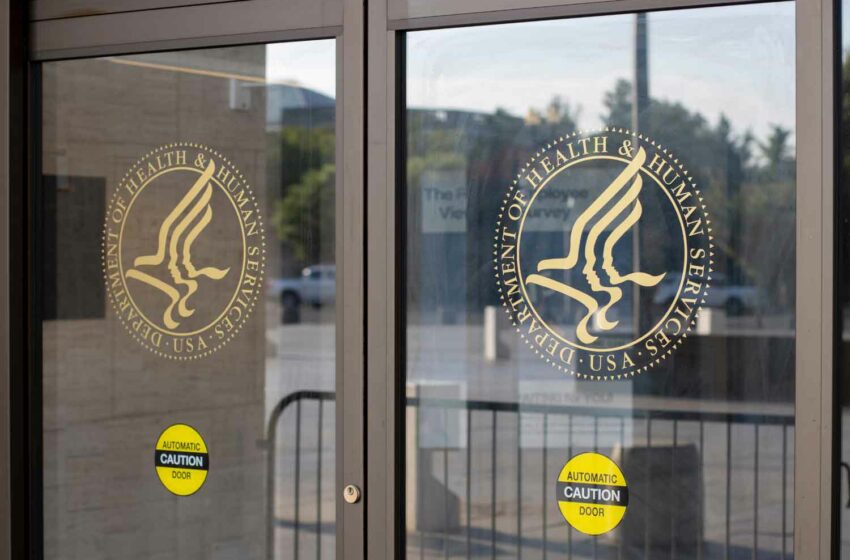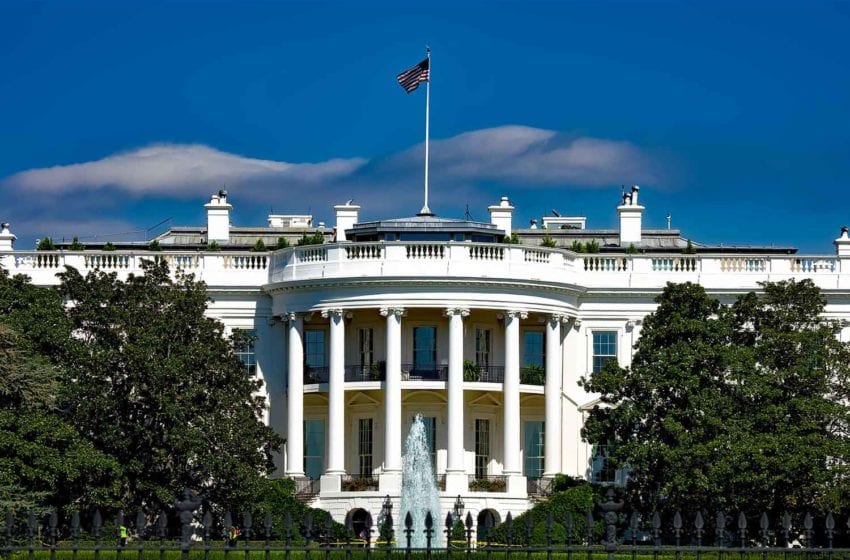
Insights into the agency’s thinking as it pursues regulatory authority over the tobacco business.
By Colleen Zimmerman Blackard

The swarm brought a little smile to my face. Here, at the Department of Health and Human Services building, home to the Food & Drug Administration in Rockville, Maryland, USA, outside the front entrance’s plate glass doors, were ashtrays. And huddled around, lighting up, inhaling and exhaling, and stubbing out, were 12 smokers.
Some might have been visitors, surely others were employees. Although running against the clock, I was compelled to stand with them for a moment, light up, and commune with a nod and a smile and an occasional roll of the eyes.
Then I went inside.
Like many government buildings, FDA is situated in a maze of blank offwhite corridors and shiny tiled floors. A sterile environment for the national government’s hive of health policy.
FDA Commissioner David Kessler was unavailable to meet with TR. So Jim O’Hara, FDA associate commissioner for public affairs, and Mitch Zeller, special assistant for policy, answered questions instead.
Here, a summary of what’s on the FDA’s mind.
TR: Why didn’t Commissioner Kessler pursue his tobacco agenda during the Bush Administration, when he was appointed?
O’Hara: The genesis of the agency’s thinking dates back to the Bush Administration. Shortly after he was named to his post, he considered a petition from COSH (the Coalition on Smoking OR Health) …. We began seriously looking at the issue in 1991.
TR: How many people—what percentage of employees—are devoted to tobacco-related issues at FDA?
O’Hara: We use people as needed to address specific questions. For the nicotine addiction question, a number of people participated at one time or another. It’s almost impossible to count.
Zeller: But if you take all of these people and put them on a full-time employee equivalent basis, fewer than two dozen have been devoted to tobacco issues. And that’s out of 10,000 employees.
O’Hara: But if you counted all of the names, it would be a few dozen. Some worked on it for a day, some a week.
TR: Is the agency neglecting its mission by pursuing tobacco regulatory authority? One congressman has said that expanding FDA authority is not the answer, particularly when approving life-saving drugs can take years.
O’Hara: The fact is, this agency is reviewing and approving drugs in record time. Historically, during the 1980s, review and approval took 26 to 27 months. In 1994, the median time was 19.1 months. We have significantly decreased the agency’s historical average. And for important therapeutic drugs under the user fee program, the review/approval process is 10.4 months. We’re reviewing and approving drugs faster than ever before. [In future] we will be reviewing all drugs in 12 months, and for important therapies, six months.
To say that the FDA is not pursuing its core mission is wrong.
TR: FDA wants to regulate tobacco: under what authority?
Zeller: Under a combination drug and device authority. Nicotine is the drug, and cigarettes and smokeless tobacco are the nicotine delivery devices.
O’Hara: The law provides us to choose our approach. We have a lot of flexibility on how we approach sales, use and distribution of the product.
TR: How can tobacco be declared legal by FDA if it can’t declare it “safe” and “effective” as it is required to?
O’Hara: As I said, under the restrictive device provisions under the statute.
TR: Doesn’t the Federal Trade Commission have jurisdiction over tobacco advertising?
Zeller: FTC’s jurisdiction is not exclusive. What we want to do is reduce access and reduce appeal. We have the legal authority to do that. Adult smoking rates are going down; kids’ smoking is increasing. This is a kids’ issue. It’s not about adults; it’s about preventing children from smoking, preventing the next generation from being hooked.
We have 40 million tobacco users who are addicted. Studies show that nicotine is more addictive than heroin and cocaine. We have a public health issue to grapple with, but the commissioner has said under oath-many times-that he’s not out to ban cigarettes.
TR: Why not?
O’Hara: A ban wouldn’t work. The agency’s strategy is to keep kids from getting hooked in the first place.
Zeller: We can’t do it by ourselves. We have to change the environment in which tobacco is sold. This isn’t a Big Brother issue. We’re providing the tools to help keep kids from using tobacco. And with those tools, anyone who cares can use them. It’s up to the rest of us to use those tools.
O’Hara: The industry has said repeatedly that we are going to do things we haven’t said and haven’t done.
TR: Why not have the FTC, or another agency that already regulates the tobacco industry, expand its jurisdiction? Was there any investigation by your agency, or another government agency, to expand jurisdiction already in force?
O’Hara: The investigation we undertook was within our jurisdiction. But no, I’m not aware of any other investigation [to expand jurisdiction] by any government agency.
TR: In Dr. Kessler’s letter to Scott Ballin, chairman of the Coalition on Smoking OR Health, he says a strict application of agency provisions could mean, ultimately, removal from the market of tobacco products containing nicotine at levels that cause or satisfy addiction.
O’Hara: But in the following paragraph he says he would not pursue a ban.
[Editor’s Note: What Dr. Kessler actually says in the following paragraph(s), in his letter to Ballin of Feb. 25, 1994, is: “Given the widespread use of cigarettes and the prevalence of nicotine addiction, such a regulatory action could have dramatic effects on our society. One must consider the possible effects of the loss of this source of nicotine on the health of some people who are addicted to nicotine and the possible need for a weaning period. It is also important to consider the potential for a black market in nicotine-containing cigarettes.
“We recognize that the regulation of cigarettes raises societal issues of great complexity and magnitude. It is vital in this context that Congress provide clear direction to the agency. We intend therefore to work with Congress to resolve, once and for all, the regulatory status of cigarettes under the Food, Drug and Cosmetic Act.”]
TR: How does the FDA define addiction?
O’Hara: An advisory committee has looked at this. Every major medical group has looked at this question, and each has said cigarettes are addictive.
The industry has not presented any argument to the contrary.
Zeller: The industry says cigarettes are not addictive because they do not intoxicate. Intoxication is just one possible criteria. And under no one’s definition is it essential.
TR: Is it possible the FDA, if it regulated tobacco, would phase down nicotine levels to what it deemed nonaddictive levels?
Zeller: It’s a theoretical proposition.
Is there a level below which nicotine in cigarettes is not addictive? We don’t have a clue what that level is. There are researchers looking at it, though, independently.
TR: When the FDA asserted it had jurisdiction over tobacco, it surely expected a lawsuit, which of course delays action. Isn’t it in youths’ best interest to allow Congress to legislate or work for a voluntary agreement with the tobacco industry, which could take effect quickly, rather than assert jurisdiction and tie up your proposal in court for perhaps years?
O’Hara: It’s the industry that’s going to tie this up in court. If the industry is serious about wanting to keep kids off cigarettes, it’s time the industry’s actions matched its words. The industry can try to improve the proposal.
TR: Doesn’t Dr. Kessler’s initiative need congressional approval?
Zeller: Congress’ approval is not required. Congress can act now, but it does not require an act of Congress for FDA authority.
TR: What actions has the agency taken so far?
O’Hara: Documents are on display in the Federal Register, and they’re available on the Internet. We’re accepting comments until November 9th.
TR: Will FDA extend the comment period?
O’Hara: The current comment period is November 9. At times, the agency has extended the comment period. But I don’t know of any decision made on this.
TR: Some tobacco companies have already launched their own efforts to reduce teen smoking, like Philip Morris’ Action Against Access. Do the industry’s efforts go far enough in your opinion?
O’Hara: The President has said voluntary efforts will not work. If voluntary efforts mean they’re serious, that’s welcome. But what we need are comprehensive, enforceable measures.
TR: FDA argued it didn’t have jurisdiction over tobacco when antitobacco group ASH petitioned it in 1980.
O’Hara: The court decision said that if circumstances change, the agency could revisit the issue.
TR: The President has stated that if teen smoking is not reduced by 50 percent from a 1993 statistic, additional regulations may be introduced. What, in your opinion, would additional regulation entail?
O’Hara: This is an area open for comment, as to what would be appropriate.
TR: Some observers say FDA has no intention of regulating tobacco, that actually it is attempting to force the issue in Congress.
O’Hara: We’ve proposed a rule, Colleen. You can’t be more serious than proposing a rule. The President has said that if Congress wants to act as comprehensively as his approach, he’s willing to take a look at that.
TR: Do you believe your current proposal will affect adults?
O’Hara: No. There is nothing in our proposal that affects access to adults to what will continue to be a legal product.












